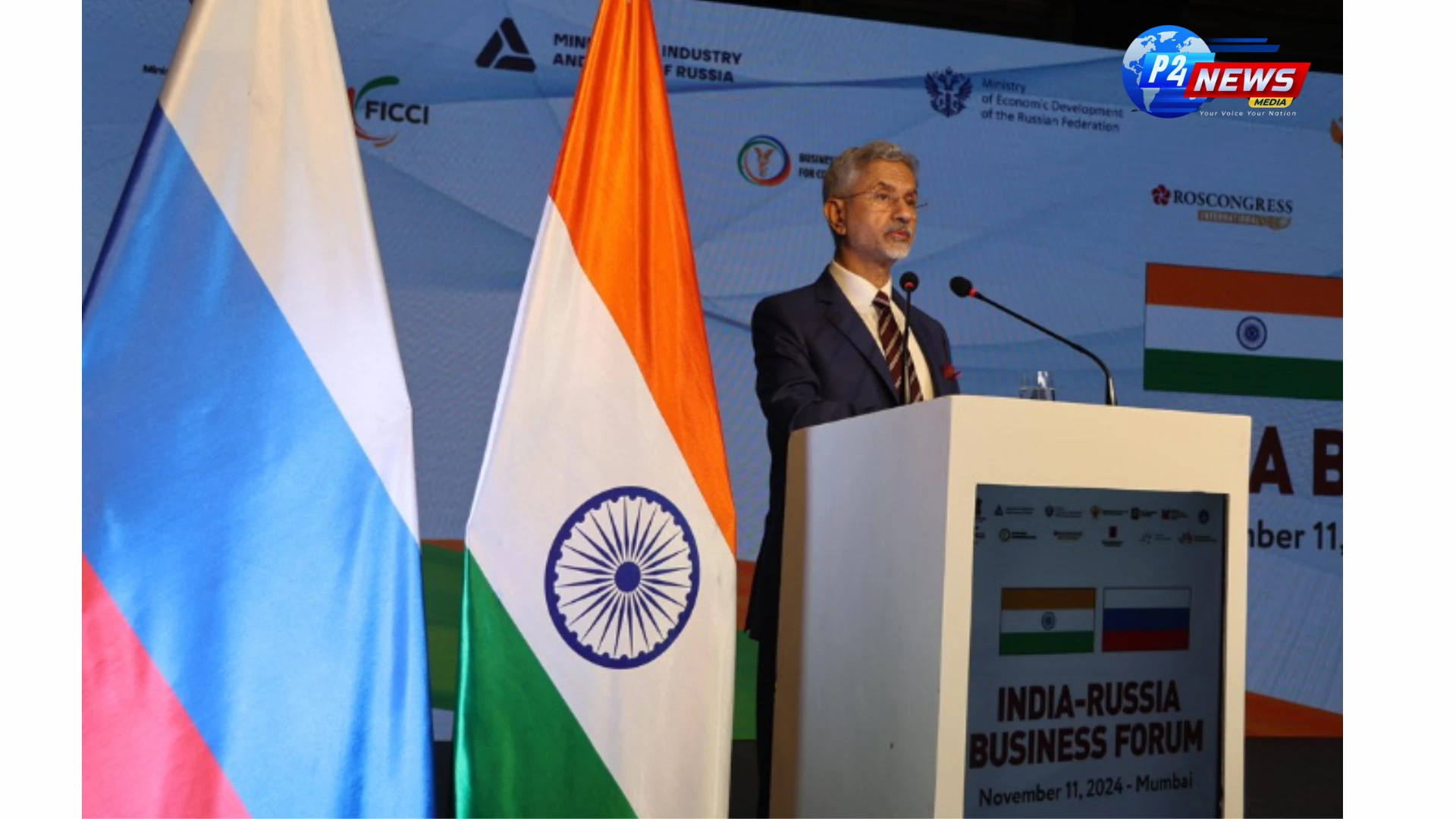India's exports to Russia totaled merely USD 2.24 billion from April to August this fiscal year, whereas imports surged to USD 27.35 billion, resulting in a staggering trade deficit of USD 25.11 billion.
India's exports to Russia totaled merely USD 2.24 billion from April to August this fiscal year, whereas imports surged to USD 27.35 billion, resulting in a staggering trade deficit of USD 25.11 billion.
External Affairs Minister S Jaishankar emphasized the need for immediate measures to address the widening trade gap between India and Russia during a recent event. During the period of April to August this fiscal year, India's exports to Russia were recorded at just USD 2.24 billion, in stark contrast to imports which escalated to USD 27.35 billion. This has culminated in a substantial trade deficit amounting to USD 25.11 billion.
Much of this trade imbalance can be attributed to an increase in crude oil imports. Russia has become a primary source for India's crude oil, particularly after oil from Russia became available at discounted rates as several European nations curtailed purchases in the wake of Russia's military actions in Ukraine commencing in February 2022.
At the India-Russia Business Forum, Jaishankar stressed the urgency of addressing the one-sided nature of the trade balance. He urged the removal of non-tariff barriers and bureaucratic obstacles that hinder a more equitable trade relationship. "The balance of trade needs urgent redressal,” he stated. He further highlighted the need to expedite the dismantling of regulatory hurdles to enhance trade with Russia.
Currently, bilateral trade between India and Russia stands at USD 66 billion, with ambitions to reach USD 100 billion deemed "more than realistic." Jaishankar underscored the importance of mutual trade settlements in national currencies to foster a healthier trade balance, particularly under the prevailing circumstances. He mentioned that Special Rupee Vostro Accounts have emerged as an effective mechanism for such settlements.
The external affairs minister pointed out the significance of discussions between Prime Minister Narendra Modi and President Vladimir Putin at their recent summits in Moscow and Kazan, which provided a strategic roadmap for future collaboration.
Jaishankar drew attention to three pivotal connectivity projects that could enhance economic interactions: the International North-South Transport Corridor, the Chennai-Vladivostok Corridor, and the Northern Maritime Route. He acknowledged that addressing concerns related to banking, payments, logistics, shipping, insurance, and market access would be essential for successful trade expansion.
In the energy domain, including oil, gas, coal, and uranium, Jaishankar affirmed India's position as a significant player in global markets. He noted that creating mutually beneficial frameworks could help both countries navigate through volatile economic times.
Jaishankar also proposed that India and Russia could collaborate to tackle demographic challenges and optimize human resource development for the Russian market. He stressed the need for focused initiatives aimed at customizing skills to meet market requirements.
The minister highlighted that non-economic factors also play a crucial role in strengthening ties, recommending increased cooperation in education and cultural exchanges, such as films, to foster a deeper societal and economic connection.
The event, which featured the presence of Russian Deputy Prime Minister Denis Manturov and was supported by the Indian industry lobby group Ficci, attracted numerous business representatives, including Anish Shah from Mahindra, emphasizing the growing interest in enhancing Indo-Russian trade relations.
Like
Dislike
Love
Angry
Sad
Funny
Pray
9th Ayurveda Day in Melbourne: A Celebration of Ayurvedic Innovations and Global Health Impact
November 10, 2024Australia’s Terror Alert Jumps to ‘Probable’: What You Need to Know About the Increased Risk
August 05, 2024🍪 We Value Your Privacy and Experience Hi there! We use cookies to enhance your browsing experience, provide personalized content, and analyze site traffic. By continuing to use our site, you consent to our use of cookies.







Comments 0